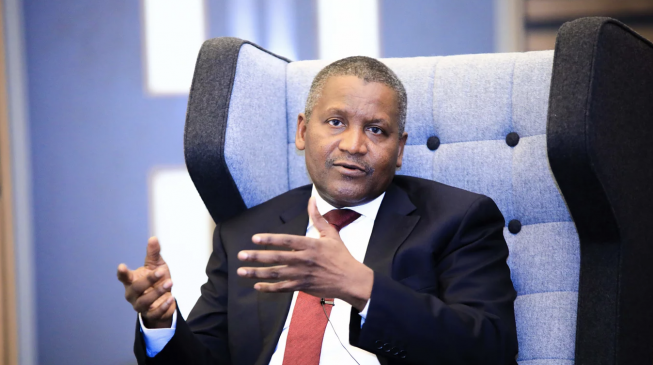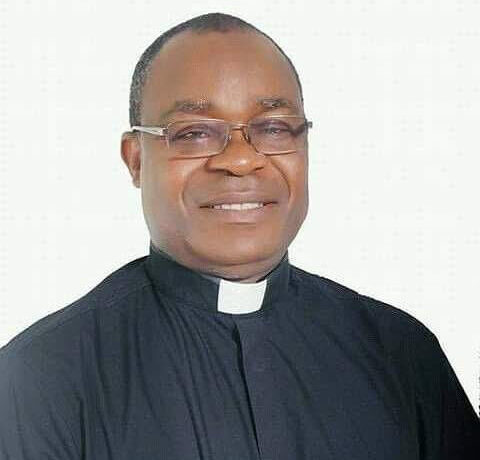Hunger: How Tinubu’s efforts to stop August 1 protests failed

Key points:
- Nigeria locked down due to protest
- Bid to dissuade Nigerians from participating in the protest failed
- Protesters defied court restrictions on venues
- Protesters sang the old national anthem as a sign of expressing their frustration
- Tinubu’s plea falls on deaf ears
By Emmanuel Kwada
Despite appeals from religious leaders, governors, student leaders, and private individuals, Nigerians took to the streets on August 1 to protest against hunger and bad governance. The protest, planned to take place in all 36 states and the FCT, saw thousands of Nigerians demonstrating their frustration with the current state of the nation.
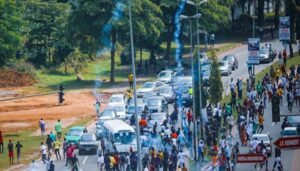
Credit: Arise Tv
Secretary to the Government of the Federation, Senator George Akume, had called on Nigerians not to embark on the planned protests, assuring that President Bola Ahmed Tinubu’s administration is working to address the country’s challenges. However, his appeal fell on deaf ears as Nigerians could no longer withstand the economic hardship.
In Lagos, Governor Sanwo-Olu warned against the protest, citing the devastating effects of the 2020 EndSARS protest. However, his warning was ignored, and protesters gathered at various locations across the state.
The National Association of Nigerian Students and the National Association of Ogun State Students had also distanced themselves from the protest, but this did not deter Nigerians from taking to the streets.
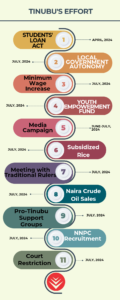
Theinsight
In a desperate bid to dissuade Nigerians from participating in the planned nationwide protest, President Bola Tinubu’s administration took drastic measures which includes;
1. Meeting with Traditional Rulers: President Tinubu met with traditional rulers, led by the Sultan of Sokoto and the Ooni of Ife, to seek their support in averting the protest.
2. Subsidized Rice: The government announced the sale of 50kg bags of rice for ₦40,000 at designated centers across the country in order to dissuade the citizens from participating in the hunger protests against his administration.
3. Naira Crude Oil Sales: President Tinubu directed the NNPC to sell crude oil to Dangote Refinery and other upcoming refineries in Naira.
4. Pro-Tinubu Support Groups: Support groups were mobilized to counter the protest and promote the government’s achievements, and they have been demonstrating in the past few days across the country.
5. Media Campaign: A media campaign was launched to highlight the government’s efforts and discourage citizens from participating in the protest pointing to the previous damages from the #ENDSARS Scenario in 2020.
6. Youth Empowerment Fund: A N110 billion fund was dedicated to empowering youth in priority sectors to drive economic growth and also divert their attention from the protest.
7. Local Government Autonomy: The federal government dragged state governors to court to enforce full autonomy of local governments.
8. Minimum Wage Increase: President Tinubu signed the minimum wage bill into law, increasing it to ₦70,000.
9. NNPC Recruitment: The NNPC opened recruitment to divert attention and provide jobs for youth.
10. Students’ Loan Act: The government signed the Students’ Loan Act to ease financial burdens on Nigerian students.
11. Court Restriction: The government took the faceless protesters to court, restraining them from public places. In Abuja, a court order restricted protesters to the Moshood Abiola International Stadium.
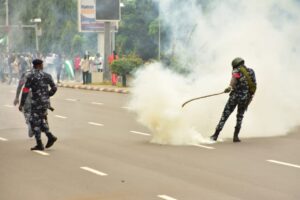
Credit: Daily Trust online
Despite these efforts, protesters stormed the streets across the country, demanding an end to bad governance.
Hunger brought me out
Though the protest is ongoing peacefully, with security agencies present at all venues, the protesters’ message is clear: they can no longer endure the hunger and hardship caused by bad governance. As one protester at the Moshood Abiola International Stadium said, “Hunger brought me out.” This sentiment is echoed across the country, with Nigerians demanding change and better living conditions.
Read Also: IGP Meets With Take It Back Movement, Paramilitary Chiefs Ahead Of Planned Protests
In another dramatic turn of events, protesters in Port Harcourt, Rivers State sang the old national anthem as a sign of expressing their frustration. Meanwhile, in Lagos, protesters shunned the allocated venues given to them by the state government and took to the streets to express their frustration.
The question on everyone’s mind is: will Nigeria’s security agencies handle the protests with civility across the country?
Read Also: Tinubu Support Group Converges At Nyanya Market, Urges Nigerians To Shun August 1 Protests
The Insight Report
Nigeria Coverage

